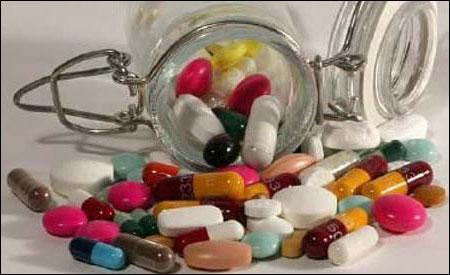 | « Back to article | Print this article |
New rules for Indian generic drug makers
The US Food and Drugs Administration (US FDA) recently made amendments to its law to introduce a generic drug user fee. According to the new law - The Generic Drugs User Fee Amendment (GDUFA) of 2012 - companies will have to pay a fee ranging between $17,435 and $51,520 an application to seek an approval. The fee, in force since October 1, is also for applications pending without a tentative approval.
Besides, drug makers will also have to pay for inspection of their facilities by the FDA outside the US, and for supplying active pharmaceutical ingredients (APIs) for manufacturing generic drugs in the US.
However, the current rates are in effect only till September 30, 2013, and will be revised every year.
According to US FDA, companies will have to pay $17,434 per generic drug application pending without tentative approval till October 1. For applications seeking generic drug approval on or after October 1, companies will have to pay $51,520, whereas for Drug Master File (DMF-filed for supplying API or raw material for generic drugs), companies are required to churn out $21,340.
However, a firm has to pay only a one-time fee on DMFs whenever they supply it for a new generic drug.
"The DMF fee is a one-time fee, incurred on first reference of the DMF on or after October 1, 2012. This fee is not incurred every time a DMF is referenced," the FDA said.
It added, "GDUFA specifies that the amount of the fee for a facility located outside the United States and its territories and possessions shall not be less than $15,000 and not more than $30,000 higher than the amount of the fee for a domestic facility. The differential amount is designed to reflect the higher costs of inspections funded, in part, through GDUFA."
Before this, FDA did not charge any fee for generic drug applications. However, under the Prescription Drug User Fee Act (PDUFA), the regulator collects a fee from companies for any newly innovated medicine.
While the move is expected to have a financial impact on generic drug makers with various companies already making quarterly provisions, US FDA claims that both patients and the industry would benefit as the fee would enable the regulator to do faster approvals.
"GDUFA will deliver greater predictability and timeliness to the review of generic drug applications, slashing review times and saving industry time and money," the FDA said.
According to the FDA estimates, during the five-year period from financial year 2013 through 2017, the generic drug industry will provide FDA an inflation-adjusted $299 million each year through user fees, supplementing the agency's allotted budget for assessing the safety of generic drugs.
The proposed generic user fee is expected to give FDA the additional resources required to expedite and improve the review of drugs. Currently, it takes the regulator an average of 30 months to review an application; it aims to reduce the review time to 10 months by 2017.
The development is significant as a large number of Indian companies are targeting various generic launches in the US, in the wake of expiring patents.
"We have a number of launches planned and we have a total of 178 fillings with the US FDA, so we have made a provisioning for the generic user fee," says Vinita Gupta, Chief Executive, Lupin Pharmaceuticals Inc.
Even companies like Ranbaxy, Cipla Sun Pharma and Glenmark have a huge pipeline of drugs pending with the US FDA for approval.
In 2011, the ANDA fillings in the US went up to 946, against 793 in 2006. This led to a sharp increase in the backlog of processing ANDAs. Analyst estimates show 2,696 generic drug applications were pending with the FDA as of December 2011, as compared to 1,216 in December 2006.
The US generic market, 70-75 per cent of the total US pharmaceutical market, is currently estimated at $350 billion and seen to grow at 3 to 5 per cent yearly. Sales by Indian companies make up for around 10 per cent of the US market.
Around 1,000 generic applications are filed in the US market every year by Indian drug companies.

